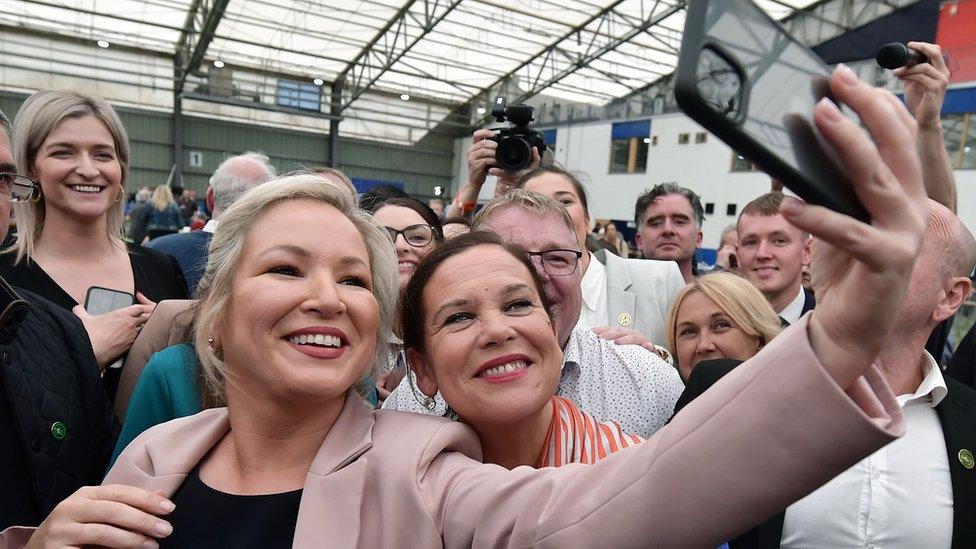Northern Ireland: What is an integrated school?
- Published
- comments
BBC Young Reporters: 'We go to an integrated school'
Robyn and Noah live in County Antrim in Northern Ireland, and have been chosen to tell their story as part of the BBC Young Reporter competition.
They wanted to tell other children about the changes that had been taking place at their primary school.
In September 2021, it became one of the first primary schools in Northern Ireland to formally change its status to integrated.
This means having equal numbers of children from both protestant and catholic backgrounds, as well as those from other religious backgrounds and communities.
People in Northern Ireland are often divided into these two communities based on factors like their religious or political beliefs, and in the past there has been a lot of division between them.
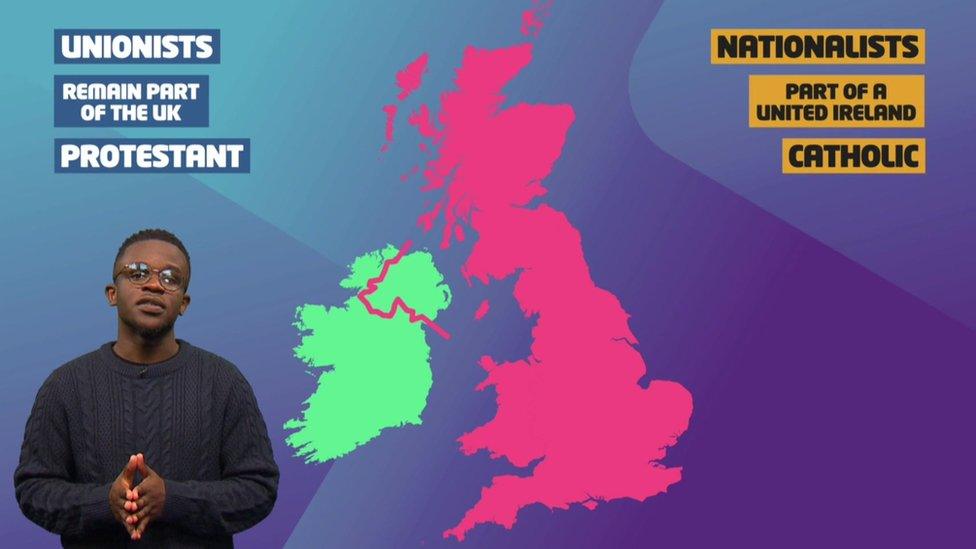
De-Graft explores the different views of the two main communities in Northern Ireland
Many unionists want to remain part of the United Kingdom and are often from a protestant background, while many nationalists who want to be part of a United Ireland and have traditionally been from a catholic background.
For a long time these divisions have led to children from the two communities going to separate schools.
Last year, figures published by the Council for Integrated Education (NICIE) said that 'nearly a third of schools' didn't have any pupils from a different religious or cultural background.
But in recent years the Northern Ireland and UK governments have been encouraging more schools to become integrated.
What do people in Northern Ireland think about integrated schools?
After the NI assembly election earlier this year, Newsround spoke to children about what they want for the future
A survey carried out last year revealed that almost three-quarters (71%) of the public think children in Northern Ireland should be taught together.
The survey was carried out on behalf of the Integrated Education Fund (IEF), who help schools make the change to become integrated, if they decide to.
Researchers spoke to 2,000 people from a wide range of backgrounds.
They said that 59% of people who would vote for unionist party the DUP and 72% of people who would vote for nationalist party Sinn Fein share this view.
But Jill Caskey from the IEF said that "although the level of integrated education has continued to grow...it is nowhere near the rate it needs to be in order to reflect the demand from parents for more integration".
How has Robyn and Noah's school changed since it became integrated?
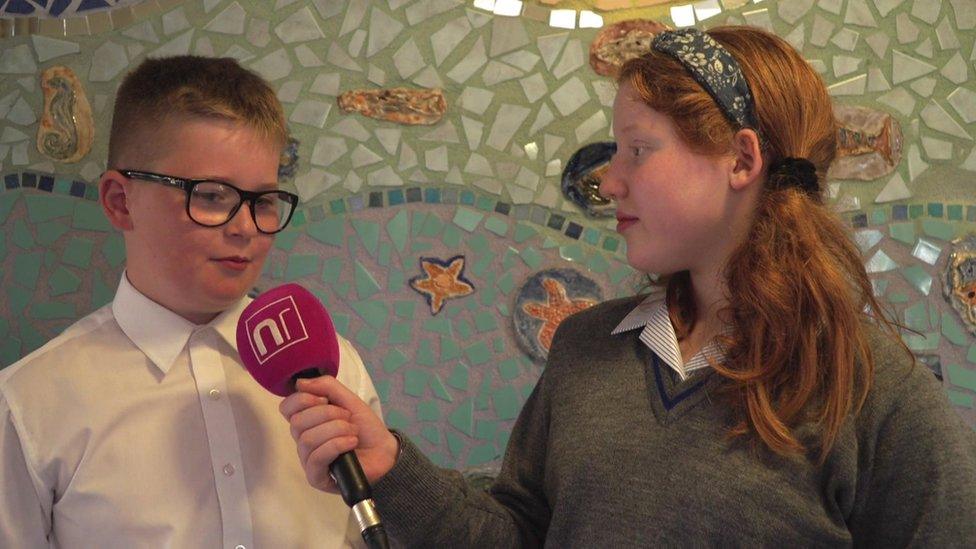
Robyn got the chance to interview Noah about how he has seen their primary school change
Noah attended the school both before and after it changed status and said when he first heard the school was going to be become integrated he didn't know what the word meant.
But since the school has changed, he has noticed some differences.
He told Newsround: "I got to make new friends, learn how to play new sports - basketball, rugby and netball - and met lots of new people I wouldn't have met if the school hadn't become integrated."
Mr Corr, the principal of Robyn and Noah's school, said there is now 40% of children from a catholic background, 40% from a protestant background, and 20% from other or no faith background.
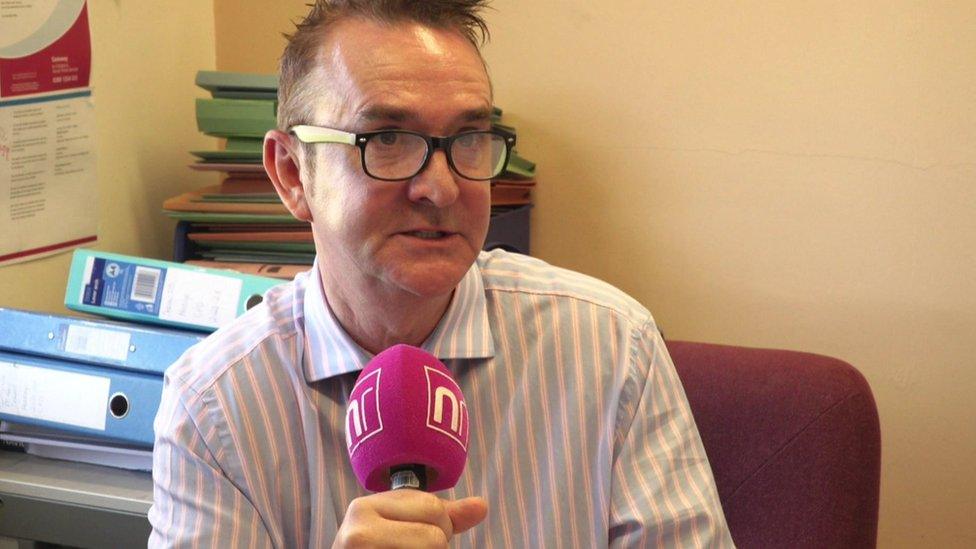
Mr Corr said he had to ask the parents if they wanted the school to become integrated and then ask the people in charge of education in Northern Ireland
He said the school will also be giving the children the chance to try even more sports, like football, Gaelic football and hockey.
The school has also changed how it approaches teaching about different religions.
Mr Corr said: "With the religious education curriculum we're looking at not only the christian events but also at other religions around the world and how they celebrate their faith.
"Other small things for example would be our assemblies, we would invite ministers - and have done - from all the christian faiths to come and lead assemblies."
What are arguments for and against integrated schools?
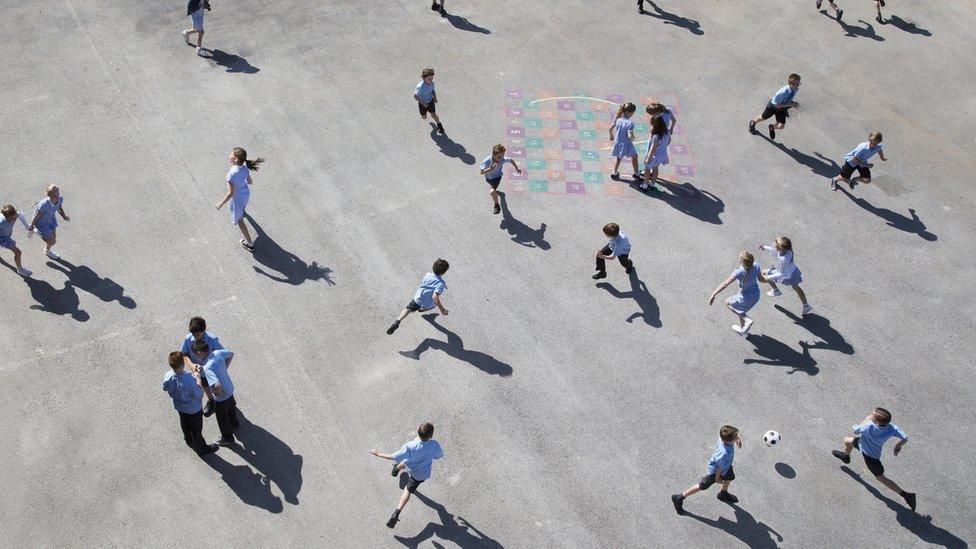
Those who support integrated education say it doesn't make sense for children to be educated separately and argue that this will allow division between the communities to continue across generations.
They say if children are able to meet those from a different background, they can learn from each other's experiences and be more understanding of points of view that are different to their own.
Another argument given in favour of integrated schools is that it allows more children to be able to go to a school closer to their home.
This is because some parents might not want to send their child to a school not associated with the community they belong to - but would be happy for them to go to an integrated school.
Mr Corr said this was the case for their school, with the number of pupils in the school doubling to 88 since they announced the plan to become integrated in 2018.
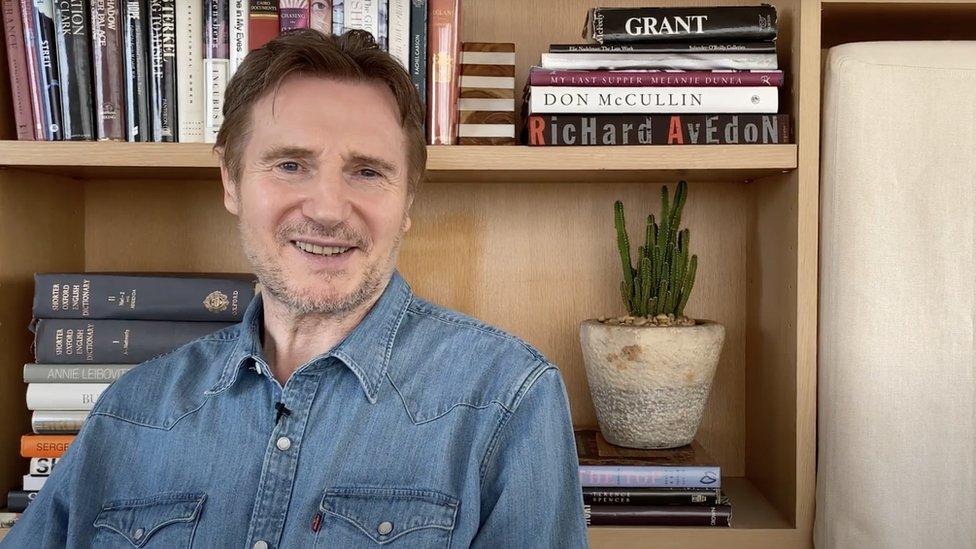
Star Wars actor Liam Neeson sent Robyn and Noah's primary school a congratulations video message when it announced it planned to become integrated
Many people including Star Wars actor Liam Neeson support the idea of more schools becoming integrated.
In March this year, a new law called the Integrated Education Act was passed, which said that the people in charge of education in Northern Ireland need to give more "support" to integrated education.
This means they need to increase the number of integrated school places and set targets for the number of children going to integrated schools.
The law has been supported by some schools and organisations and the Northern Ireland Commissioner for Children, Koulla Yiasouma.
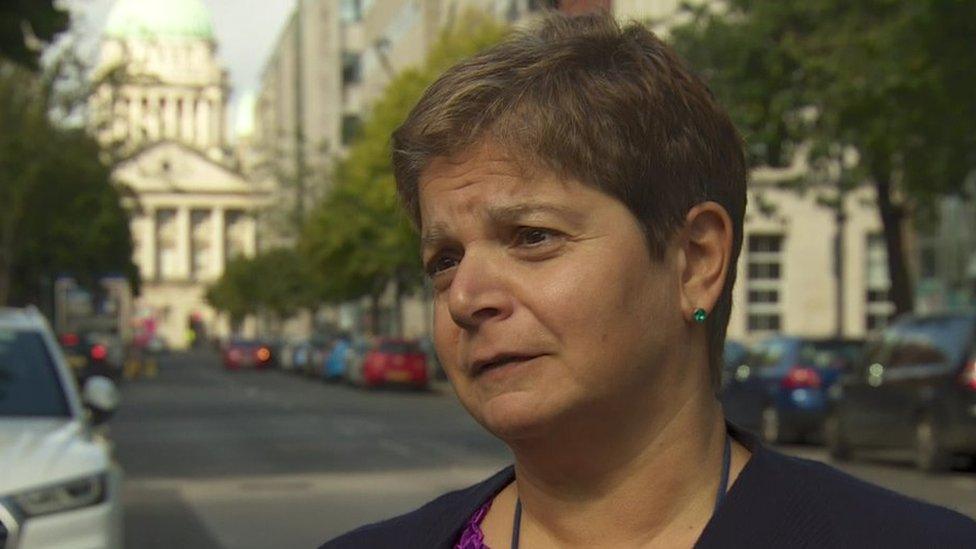
Northern Ireland's Children's Commissioner has often spoken on her views on integrated education
She said: "I look forward to the day where...we just have one system where the local school in the community is the best school for that child."
But although the majority of politicians in the Northern Ireland government voted in favour, many politicians and other schools weren't happy about it.
Some catholic and controlled schools wrote to parents to complain the law would harm existing schools, with more money and resources being given to integrated schools instead.
Organisations representing the Catholic Church, as well as the Presbyterian, Church of Ireland and Methodist churches have also said they share these concerns.
They say the new law assumes that "diversity is only possible in an integrated school", something that they say isn't the case.
Will more schools become integrated in the future?
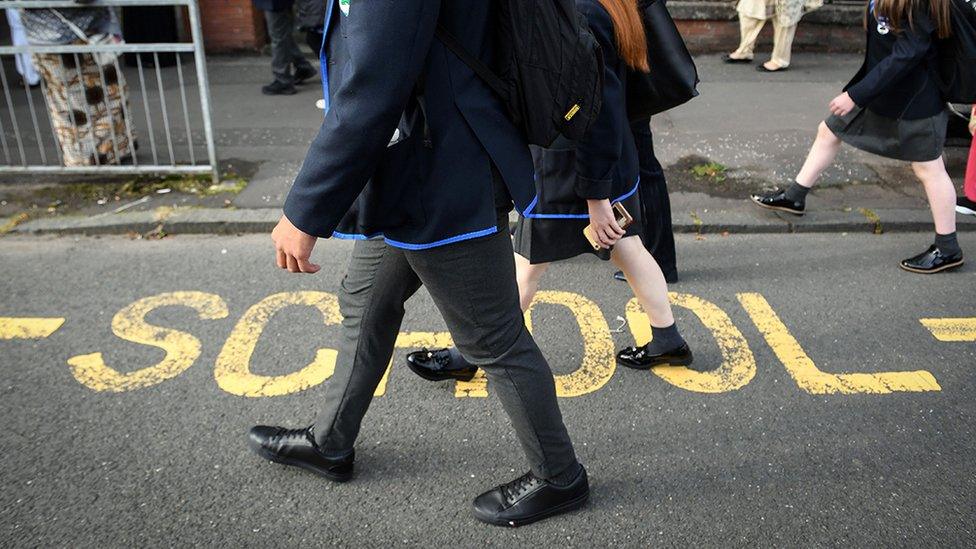
The integrated education bill was passed through Stormont in March 2022
At the start of the new term in September this year, there were 70 integrated schools in total - but this is less than 10% of all Northern Ireland schools.
Currently, only about 7% of pupils across Northern Ireland go to an integrated school.
The Integrated Education Fund has launched a new plan that aims to have 100 integrated schools in Northern Ireland by the end of 2025.
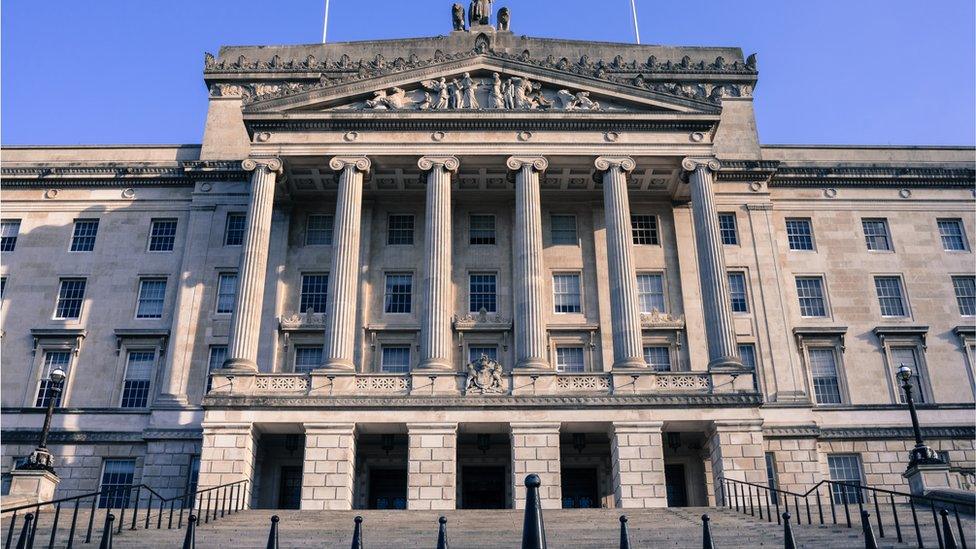
This is Stormont where the NI assembly meet - but it has been without a functioning government since February
Decisions about education on Northern Ireland are decided by the local government, rather than the UK government - but those in charge in the Northern Ireland government haven't been meeting due to a row over Brexit.
Brandon Lewis, former secretary of state for Northern Ireland, says it's important for the UK government to help Northern Ireland make progress on integrated education.
The UK government has pledged to give an extra £1.9 million funding to support schools wishing to become integrated.
But the new Northern Ireland secretary so far hasn't made any comment on integrated education.
- Published3 May 2021
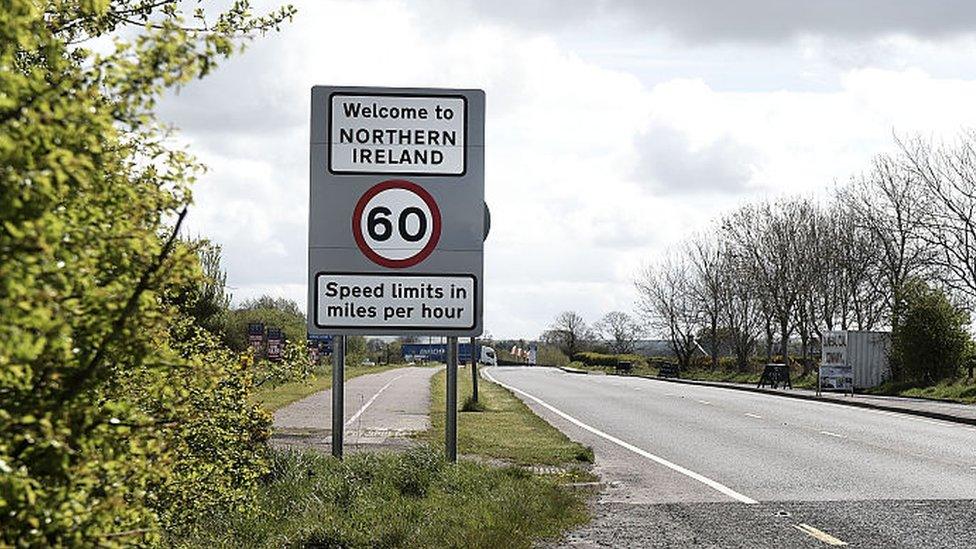
- Published18 May 2022
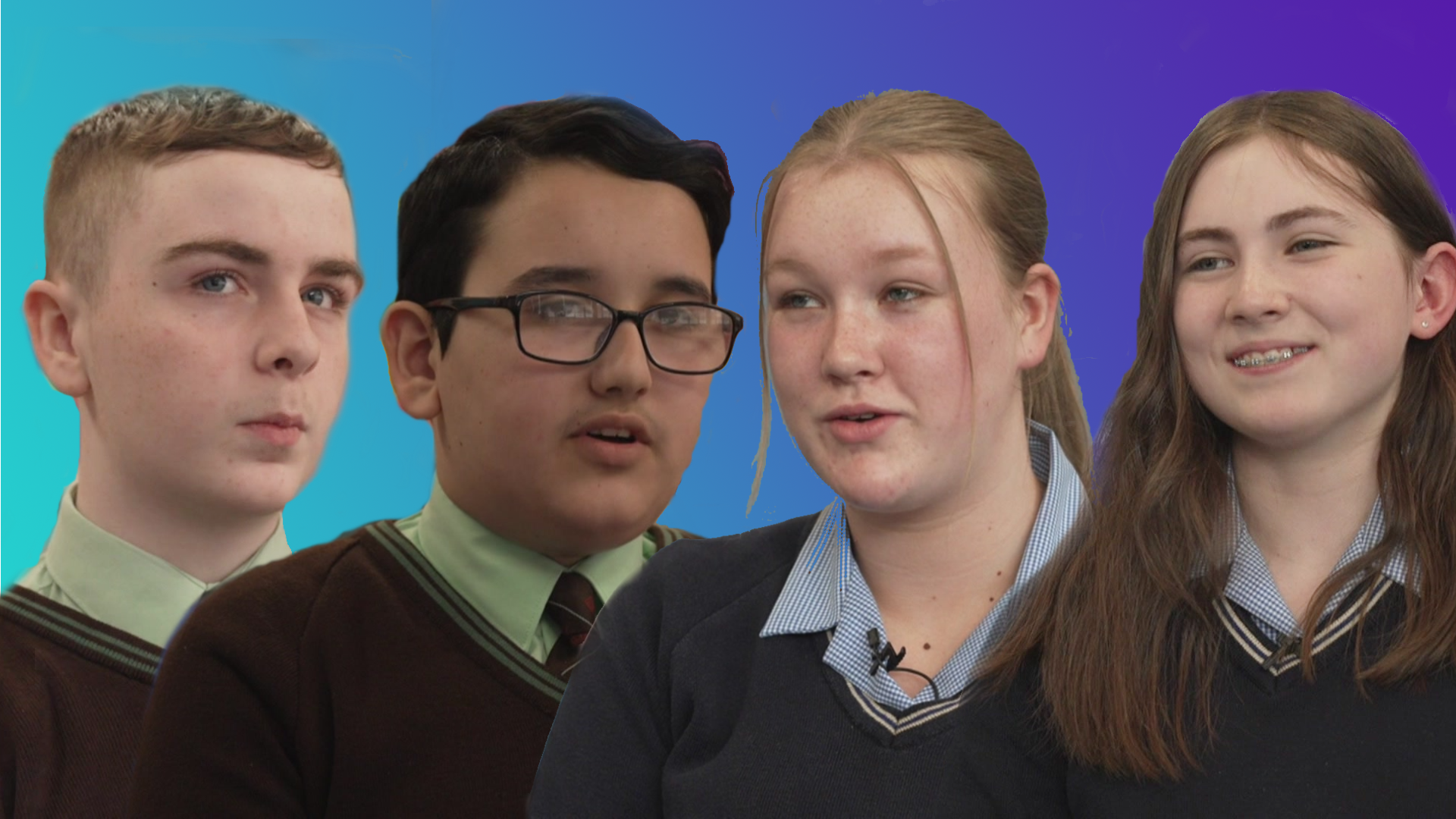
- Published9 May 2022
